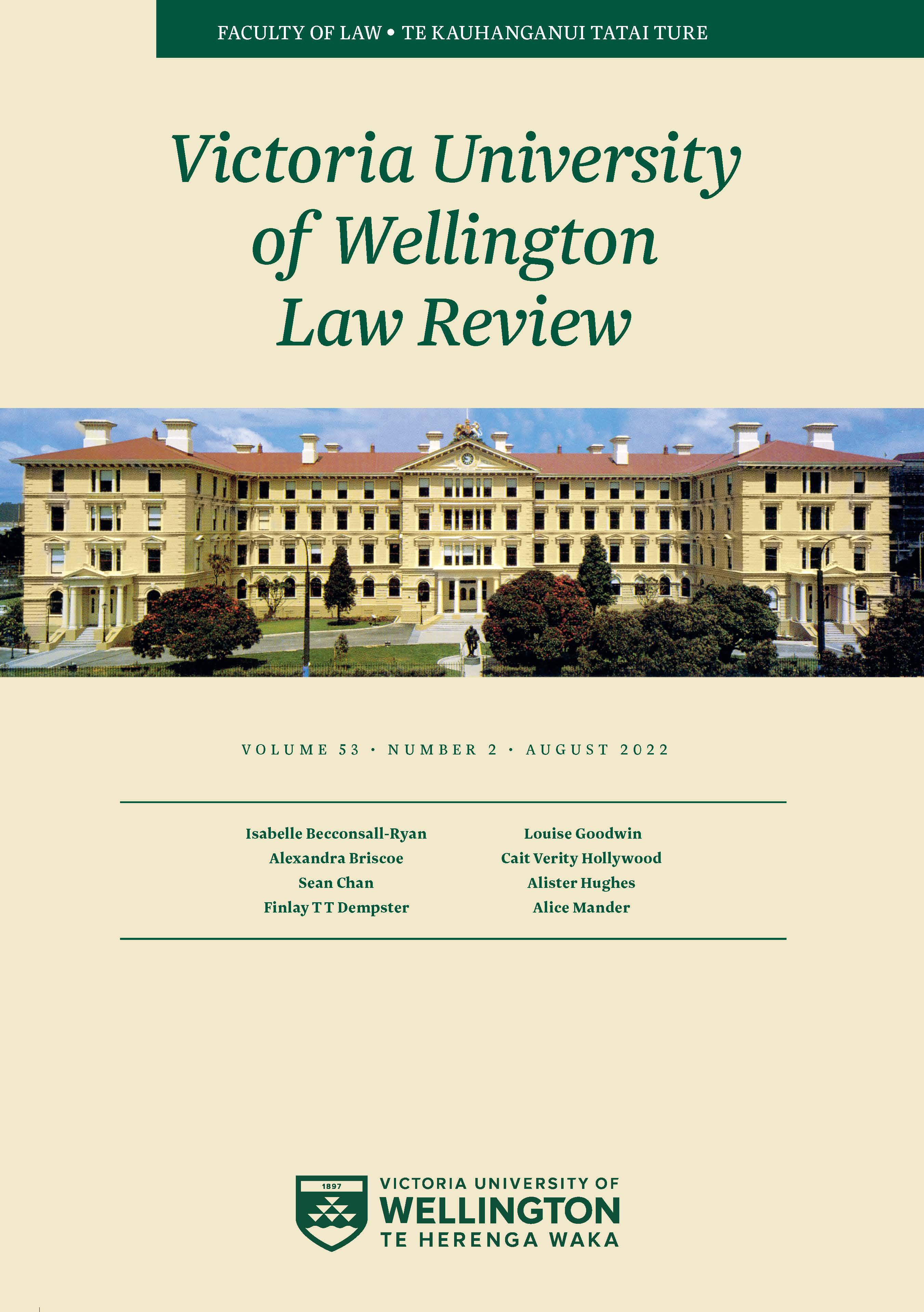Combatting Hate in New Zealand: The Problems with Hate Crime Legislation and the Importance of Non-Criminal Alternatives
DOI:
https://doi.org/10.26686/vuwlr.v53i2.7702Abstract
This article discusses the Royal Commission of Inquiry's recommendation to reform New Zealand's hate crime legislation following the Christchurch terror attack. New Zealand currently uses a sentencing enhancement provision that has faced much criticism for being unable to reflect the serious nature of hate-motivated offending. It is also poorly enforced. The Commission recommended replicating the United Kingdom's approach by creating separate hate crime offences. This article argues that this is not the most productive way to combat hateful conduct and achieve the Commission's broader goal of social cohesion. Evidence from the United Kingdom suggests that many of the intended benefits of separate offences do not eventuate in practice. This article considers that criminalisation is not the best way to address hateful conduct generally. Hate crime laws risk being counter-productive and are unlikely to change societal attitudes. The conclusion is that it would be more beneficial to focus on non-criminal anti-hate responses, such as education. These alternative anti-hate methods will be more likely to address the root causes of hostility, prevent the development of hateful attitudes and thus reduce the frequency of hate-motivated offending in New Zealand.
Downloads
Downloads
Published
How to Cite
Issue
Section
License
Authors retain copyright in their work published in the Victoria University of Wellington Law Review.


